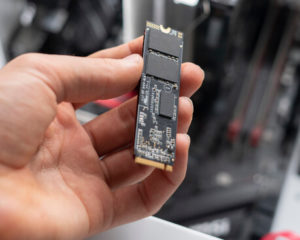lzop is a file compressor which is very similar to gzip. lzop uses the LZO data compression library for compression services.
Read more
The Linux Portal Site

lzop is a file compressor which is very similar to gzip. lzop uses the LZO data compression library for compression services.
Read more
pigz is a fully functional replacement for gzip that uses multiple processors and multiple cores to the hilt when compressing data.
Read more
Brotli is a generic-purpose lossless compression algorithm that compresses data.
Read more
Zstandard is a fast compression algorithm, providing high compression ratios.
Read more
LZ4 is lossless compression algorithm, providing compression speed > 500 MB/s per core (>0.15 Bytes/cycle).
Read more
xdiskusage is a user-friendly program to show you what is using up all your disk space. It is based on the design of xdu.
Read more
SquirrelDisk is a GUI tool to help you reclaim disk space. It’s written in TypeScript and Rust and published under an open source license.
Read more
agedu is a utility for tracking down wasted disk space. It correlates disk usage with last-access times to identify large and disused data.
Read more
Disk Usage Analyser (also known as baobab) is a graphical, menu-driven application to view and monitor your disk usage and folder structure.
Read more
Filelight allows you to determine disk space being used by graphically representating your filesystem as a set of concentric segmented-rings.
Read more